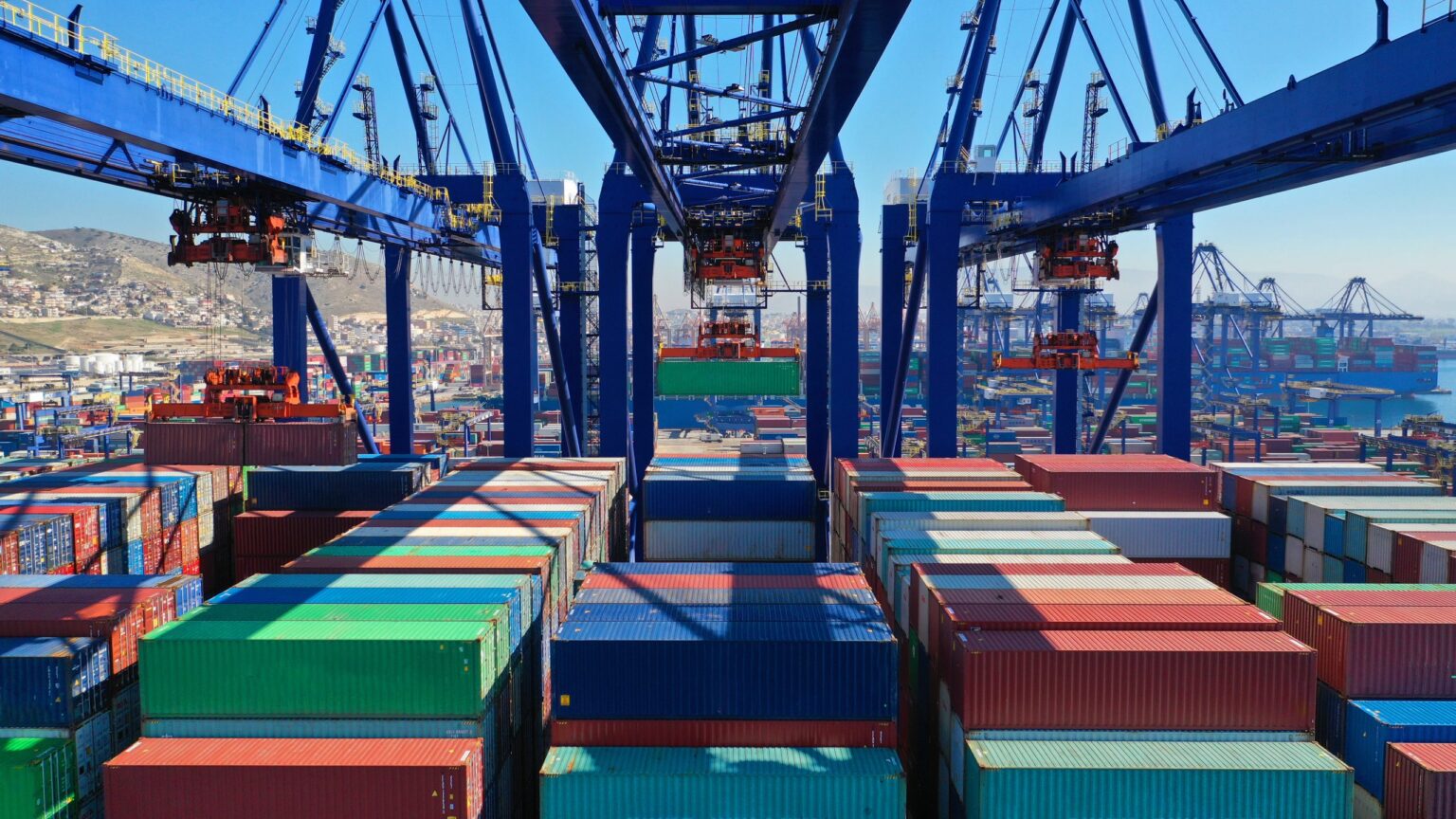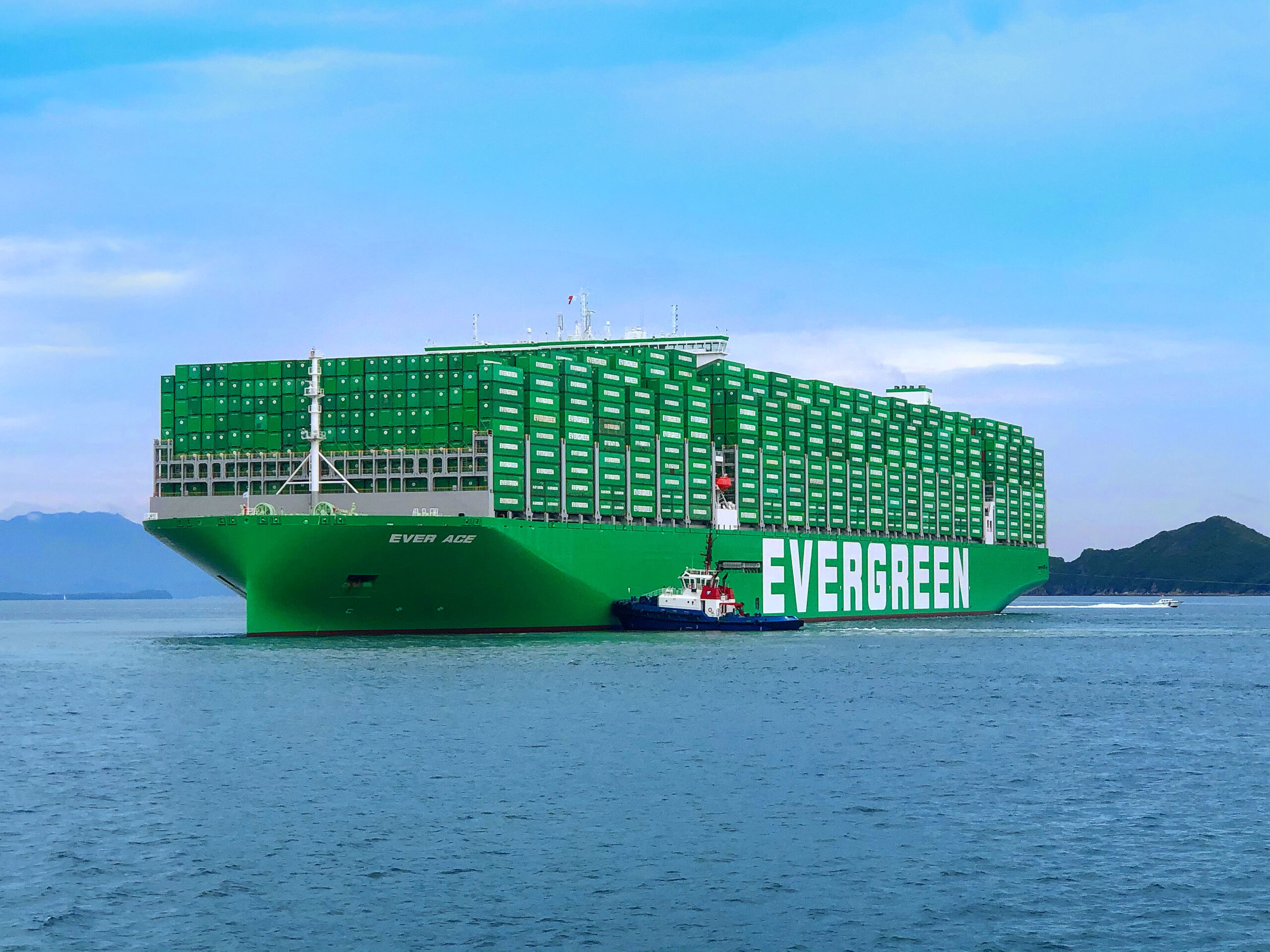COVID-19 has put a spotlight on the importance of good logistics and speeded up the transformation of the industry. How has the pandemic driven the change within logistics? What will we see more of forward?
Recently, Greencarrier Freight Services’ Innovation Manager, Erik Sjöström, participated in Sweden China Trade Council and talked about the rising shipping costs, logistics trends, changes during COVID-19 and how to break internal organizational silos.
Since the webinar was held in Swedish, we had a short chat with Erik about the takeaways from the webinar. 
Firstly Erik, what is your role as Innovation Manager?
– My role is about transforming good ideas into concepts and logistics solutions that bring value to our customers, which in logistics is centered around sustainability, responsiveness, reliability, cost, speed etc.
What will we see more of after COVID-19?
– We are heading towards a rapid digitalization of the freight forwarding industry. In general, megatrends such as digitalization, sustainability and automation will be accelerated and consolidated, while the pandemic itself will blow over. Many other industries have been digitized and changed rapidly in recent years, but in forwarding there is still a lot of manual work. I think we will see a great transformation.
How has the pandemic driven the change within logistics?
– The industry has previously focused on mass production, efficiency, and cost-effectiveness. When COVID-19 arrived, we realized that we might need to look at what we mean by a good logistics chain. It’s not just about cost efficiency, but also about building agility and robustness.
During the pandemic, customers have also demanded more knowledge and help to analyze what the changes mean for them. How have you experienced this?
– Customers have had the need to talk to someone to understand what this disruption means to them in their own industry, and here we have really been able to fulfill a function, having personal contacts as a guiding star. I think freight forwarders will develop more towards being a knowledge partner in the future, especially when managing complex, global supply chains in turbulent times. At the same time, I believe we will see a lot more digitalization for standardized, regular flows that are more reliable.
What tips do you want to give companies out there?
– You need to optimize based on the value flow and think more holistically, meaning different departments within your company need to know what other departments do. Often, those who work with sales for example, have no idea what is happening at the logistics department in-house, or if it is turbulent on the production side in China. This has become even clearer during the pandemic. A key to optimizing a chain is transparency, and that everyone in it knows what’s going on.
Do you have any hands-on tips on how people internally should gain a more holistic view?
– Sit down in the same room and measure the flow across functions, then things will start to happen for sure. This applies not only to departments within the company but also to the dialogue with your partners. If you build long-term trust between the players, it is much easier to help solve the problems that arise. This applies not least to us freight forwarders. This is nothing new, but still very current and important.
You often talk about preparation when you talk about logistics Erik, but what does this mean?
– In the restaurant industry, it is called “mise en place” – to prepare everything you can prepare. Then you must adapt depending on the situation, but if we take in what we know and prepare, we can faster adjust to what is needed by the situation. We have an incredible amount of data today, but at the same time we are incredibly bad at using it and visualizing it so that everyone understands. Companies who are best at quick changes, including green solutions, will be the winners in the long run. COVID-19 is absolutely affecting us, but the long-term trends such as AI, electrification and urbanization are here to stay and must be included in companies long term strategy. Take a step back and look at the whole picture, rather than get lost in the details.
What are your thoughts about logistics and the future? Share in the comments! Are you looking for any other information about us? You can find more information on our web page or get social with us in our social media channels.




